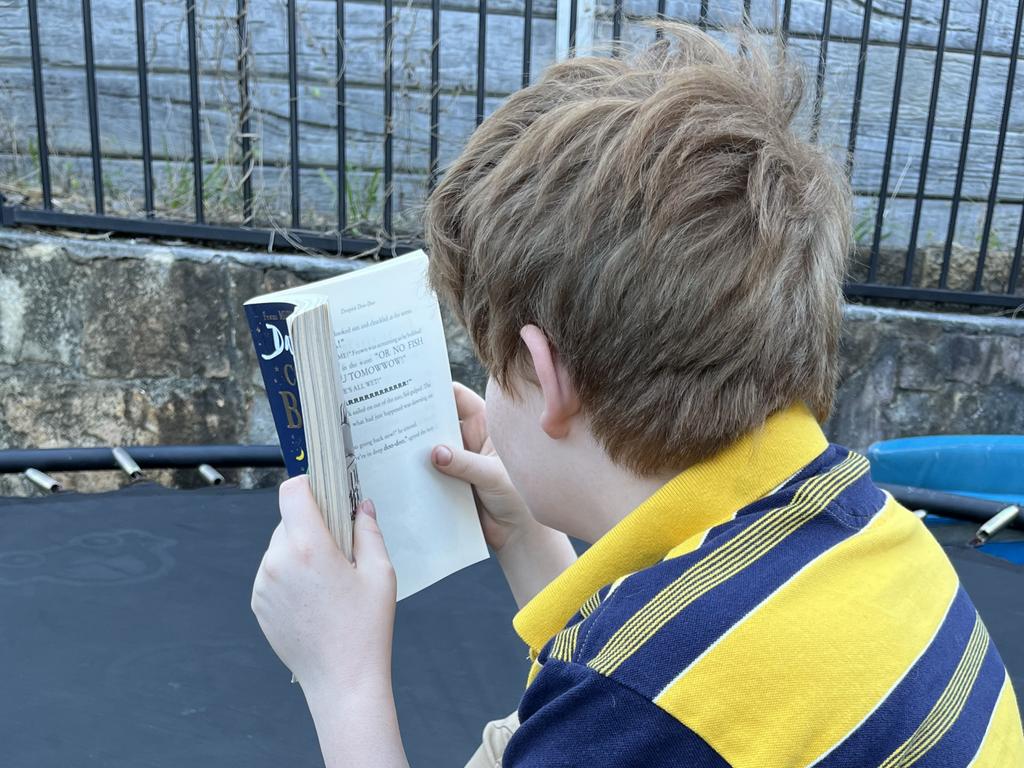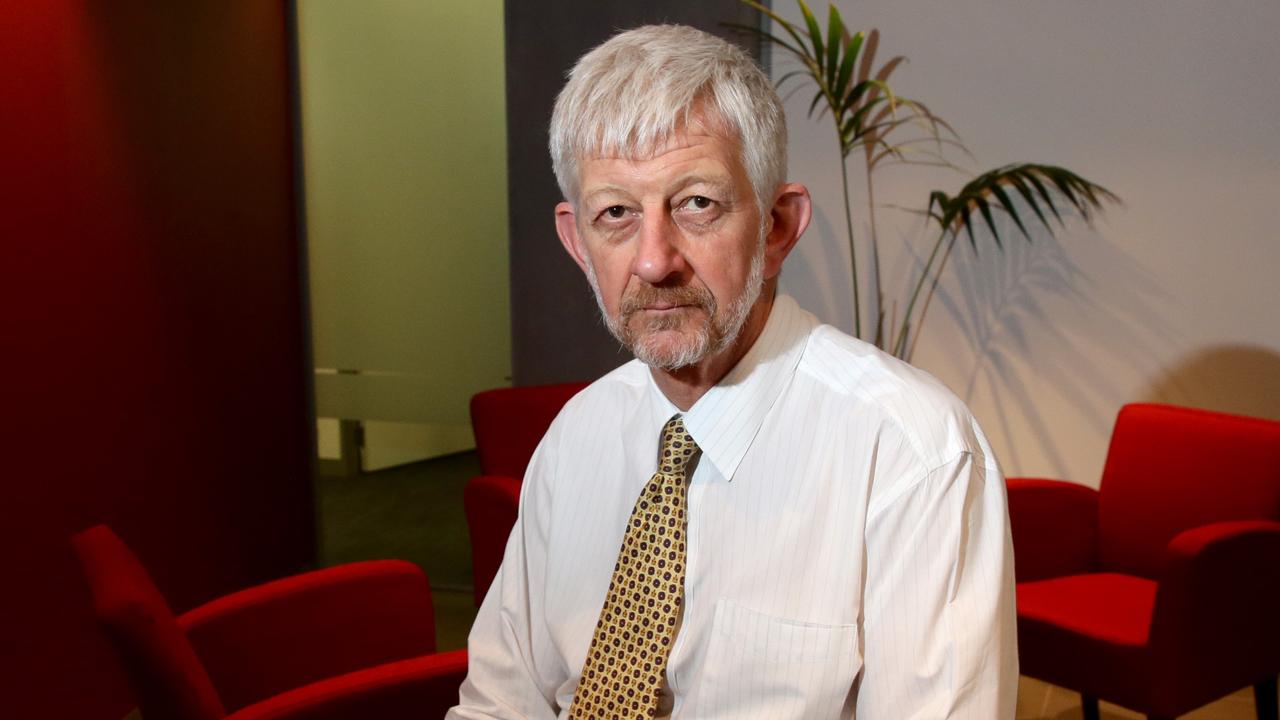Australian Education Union boycotts reforms to help children learn
The teachers’ union has turned against federal Labor over its attempts to fix Australia’s education system, slapping work bans on teaching reforms designed to help children learn.

The Australian Education Union has been accused of “putting students last’’ after imposing work bans on teaching reforms designed to help children learn, in an escalating funding fight with the Albanese government.
AEU president Correna Haythorpe announced “an immediate ban on the implementation of the Better and Fairer Schools Agreement’’.
The boycott would stop teachers from switching to evidence-based teaching techniques, such as the use of phonics to help children learn to read by sounding out the letters of words.
Federal Education Minister Jason Clare insisted he would push forward with his bipartisan reforms, which are tied to $16bn in bonus funding for state schools over the next decade.
He introduced legislation to federal parliament on Wednesday to lift the commonwealth share of state school funding above 20 per cent.
“This isn’t a blank cheque,’’ he said. “I make no apologies for tying this additional money to reforms that will support teachers and help students catch up, keep up and finish school.’’
A rival teaching union – the Teachers Professional Association of Australia – accused the AEU of “putting the needs of students last’’.
“The changes needed in our schooling system aren’t achieved by simply throwing more money at the issues,’’ TPAA secretary Edward Schuller said.
“While the AEU may be more focused on campaigning on political issues, teachers and parents are crying out for genuine reform in our education system.
“All of the key issues in education have rapidly spiraled as the bureaucracy has expanded. Student behaviour, the teacher shortage crisis, inclusion policy and plummetting results are consequences of an inefficient and unaccountable system.’’
Federal opposition education spokeswoman Sarah Henderson said the “shameful boycott of evidence-based teaching reforms shows the AEU has no regard for the best interests of children’’.
“The union’s decision to weaponise the learning outcomes of young Australians struggling to read and write is disgraceful.
“With one in three students failing NAPLAN (the National Assessment Program - Literacy and Numeracy), these reforms are critical to raising academic standards.’’
Senator Henderson said the Coalition would push for a “back-to-basics education sharply focused on proficiency in literacy and numeracy, underpinned by explicit teaching and a knowledge-rich, commonsense curriculum.’’
The AEU’s Victorian branch tried to boycott phonics-based instruction when it was mandated by Victorian Education Minister Ben Carroll this year, leading to a revolt against the union from some classroom teachers.
Ms Haythorpe said the ban would stay in place until all schools received 100 per cent of the Schooling Resource Standard – better known as the needs-based “Gonski funding’’ that business leader David Gonski recommended 13 years ago.
“In public schools today, we have chronic funding shortfalls, workforce shortages, increased workloads and students who need extra learning support,’’ Ms Haythorpe said.
“The failure to fund our schools properly impacts deeply on the teaching and learning conditions for teachers, education support staff and for students.’’
Federal Education Minister Jason Clare has offered to give the states and territories an extra $16bn in extra funding for public schools over the next decade.
This would increase the commonwealth’s share of public school funding from 20 per cent to 22.5 per cent.
The money is conditional upon states and territories introducing evidence-based teaching reforms, such as phonics-based reading methods, and explicit instruction techniques, and reducing truancy and drop-out rates.
Western Australia and Tasmania are the only states to have signed up to the deal; the other states are demanding Mr Clare double the money and pay 25 per cent of public schooling costs.
The Northern Territory signed the reform deal after the federal government doubled its funding stake to 40 per cent, in recognition of the cost of teaching large numbers of disadvantaged students living in remote Aboriginal communities.
NSW, Victoria, Queensland, South Australia and the ACT have missed the federal government’s deadline to sign the deal.
Mr Clare said the existing funding arrangements would stay in place for another year unless the states signed up. “If delivered, this would represent the biggest extra investment in public education by an Australian government in this country’s history,’’ he said. “If a state or territory does not sign on to the government’s public school funding offer, current funding arrangements will continue for another 12 months.’’
Ms Haythorpe said the reforms would increase teacher workloads. “The Albanese government cannot implement reforms without providing proper funding to pay for them,’’ she said.
“If (the agreement) is implemented without the full resources needed for public schools, it will increase the workload of the already stretched teaching profession.’’
The union is also demanding that governments halve the length of the 10-year agreement to five years.
The work ban was dictated by the AEU executive, without going to a vote of member teachers.
Ms Haythorpe later clarified her remarks, telling The Australian the ban would not apply to existing teaching practices, given many schools are already adopting phonics and explicit instruction. “The ban relates to future initiatives that are in the Better and Fairer Schools Agreement that have additional workload and are not funded,’’ she said.
“This does not relate to current work practices. The Albanese government cannot expect our members to implement reforms when they don’t have funding they need for the reforms.
“That will increase their workloads and our members have a right to say no to unreasonable workloads.’’
She would not specify which reforms were unfunded.







To join the conversation, please log in. Don't have an account? Register
Join the conversation, you are commenting as Logout